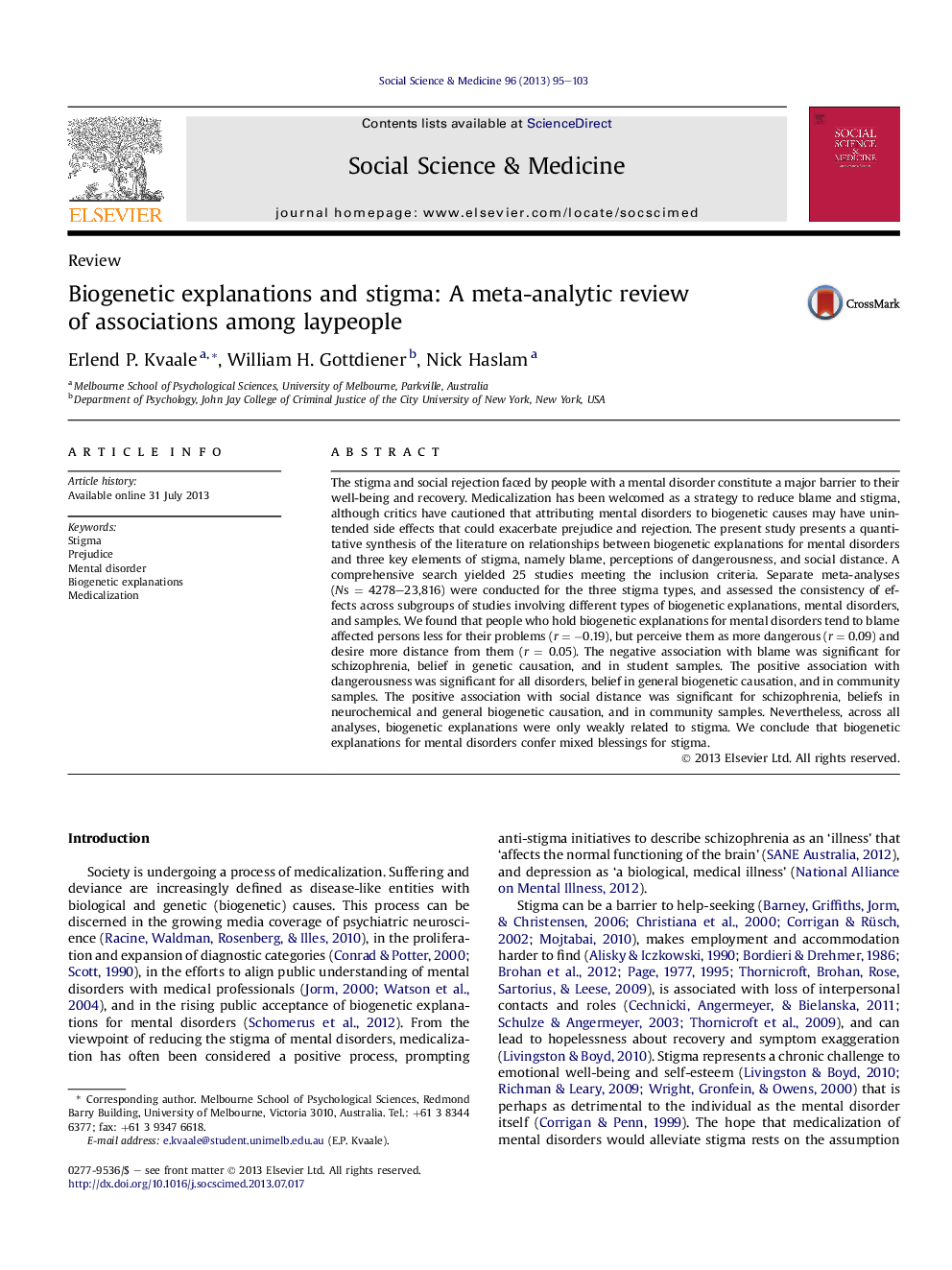| Article ID | Journal | Published Year | Pages | File Type |
|---|---|---|---|---|
| 7336729 | Social Science & Medicine | 2013 | 9 Pages |
Abstract
The stigma and social rejection faced by people with a mental disorder constitute a major barrier to their well-being and recovery. Medicalization has been welcomed as a strategy to reduce blame and stigma, although critics have cautioned that attributing mental disorders to biogenetic causes may have unintended side effects that could exacerbate prejudice and rejection. The present study presents a quantitative synthesis of the literature on relationships between biogenetic explanations for mental disorders and three key elements of stigma, namely blame, perceptions of dangerousness, and social distance. A comprehensive search yielded 25 studies meeting the inclusion criteria. Separate meta-analyses (Ns = 4278-23,816) were conducted for the three stigma types, and assessed the consistency of effects across subgroups of studies involving different types of biogenetic explanations, mental disorders, and samples. We found that people who hold biogenetic explanations for mental disorders tend to blame affected persons less for their problems (r = â0.19), but perceive them as more dangerous (r = 0.09) and desire more distance from them (r = 0.05). The negative association with blame was significant for schizophrenia, belief in genetic causation, and in student samples. The positive association with dangerousness was significant for all disorders, belief in general biogenetic causation, and in community samples. The positive association with social distance was significant for schizophrenia, beliefs in neurochemical and general biogenetic causation, and in community samples. Nevertheless, across all analyses, biogenetic explanations were only weakly related to stigma. We conclude that biogenetic explanations for mental disorders confer mixed blessings for stigma.
Related Topics
Health Sciences
Medicine and Dentistry
Public Health and Health Policy
Authors
Erlend P. Kvaale, William H. Gottdiener, Nick Haslam,
